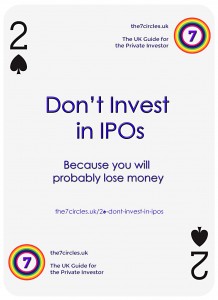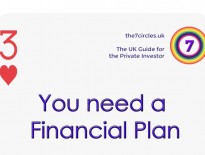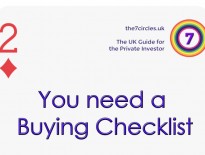2♠ – Don’t Invest in IPOs
Don't invest in IPOs - because you will probably lose money.
This post is part of the MoneyDeck series, a pack of 52 playing cards that describe 52 “golden rules” for Private Investors in the UK.
Don’t invest in IPOs. Because you will probably lose money.
What is an IPO? It stands for initial public offering, and it’s an American term that has leaked across the Atlantic. When I was young, we used to call them new issues in the UK.
IPO does not stand only for `initial public offering’. More accurately, it is a shorthand for It’s Probably Overpriced, or Imaginary Profits Only, or even Insiders’ Private Opportunity – Benjamin Graham
Whatever the term, these are companies that are currently in private hands, but some or all of the shares are about to be made available to “the public” ((Some new listings are not offered to the public at all – instead they are “placed” with institutional investors. In these cases the public has to wait until the first day of trading to buy in the secondary market )) by listing them on a stock exchange – “floating” them.
Normally only a proportion of the company is sold off.
The minimum float for a London Stock Exchange listing is normally 25%, though companies can get a waiver from the UK Listing Authority – called a premium listing – which allows them to appear in indices even though they have a lower float. ((FTSE has its own 25% minimum float for inclusion in it indices, and is under industry pressure to raise this to 50% ))
There is no minimum float for AIM.
The whole of the money raised from the float doesn’t necessarily go to the company for investment in new projects. When the company issues new shares as part of the float, the proceeds from these shares go to the company.
But sometimes, some or all of the shares will be provided by people who own them already.
This might be the founders and early workers in a company (eg. a startup) – in which case some of the cash may be re-invested in the company. Startups often motivate staff by awarding them shares that will enrich them if the company becomes successful enough to float.
Or it could be mostly people who specialise in bringing private companies to market (eg. private equity firms).
Occasionally it will be the government, privatising former state assets.
Big IPOs (Facebook, Twitter, LinkedIn etc) get a lot of media attention. Usually the focus is on the millions (or even billions) being made by the founders.
Shiny new stuff is attractive to begin with. Combine that with the prospect of profit, plus the social dividend of appearing to be part of the smart money who got in early on “the next big thing”. You can see why IPOs are attractive.
But it’s the same “insider club” mentality that attracts people to gold miners and oil exploration companies. It’s the same approach that leads to people falling for boiler room scams. It’s “narrative investing” – buying stocks with a story.
IPOs are not really an opportunity to get in on the ground floor – more like the fifth floor.
Companies are coming to market at later and later stages of their development. The real gains are going to the early stage investors from venture capital and private equity firms.
IPOs are part of the “greater fool” theory of investment. The price may have been inflated by three or four rounds of investment, but so long as the private holders can find a willing buyer, they’ll do just fine.
It’s a legal version of the Ponzi scheme that sent Bernie Madoff to jail.
IPOs are almost always bad investments. – Warren Buffett
Whether IPOs are a good thing depends on which side of the deal you are taking.
They are good news for founders, and for the investment banks who charge juicy fees to arrange and “underwrite” ((Promise to buy the shares if the public doesn’t )) the issue.
But they are not always good news for the public buying the shares. IPOs are not issued in the interests of the public.
There are exceptions – particularly privatisations – where IPOs will be floated at a price below the true value of the company. ((Royal Mail is a good recent example in the UK ))
Governments selling to their own citizens are usually very keen for the float to be perceived a success, and less concerned with achieving a premium valuation from the people who indirectly own the asset in the first place.
But normally you have a group of insiders choosing when to sell, and at what price to sell, to a group of outsiders. This is an asymmetric situation – the odds are stacked heavily in favour of the sellers.
It’s almost a mathematical impossibility to imagine that, out of the thousands of things for sale on a given day, the most attractively priced is the one being sold by a knowledgeable seller (company insiders) to a less knowledgeable buyer (investors). – Warren Buffett
Even amongst the buyers, the institutional investors are likely to know a lot more than the public. They will have been treated to the company road show.
They may even have read the offer document (more accurately, the company sales pitch) – which can run to hundreds of pages. How many private investors will read all that small print?
The main reason to stay clear of IPOs is that they underperform. ((This is obviously related to the idea that they are over-priced to begin with )) Studies over many time periods and across many markets show that new issues do worse than the general market.
- Interactive Investor and Dealogic found that from 2009 to 2013 there were 298 flotations in the UK, which lost an average of 8% during what was a boom period for the UK market
- Professor Jay Ritter looked at all US IPOs between 1970 and 1993. They returned 5.6% less in their first year than established stocks of the same market capitalisation.
- A follow-up study at the University of Florida between 2000 and 2011, the year one underperformance was 18%, and the year two underperformance was 6.3%.
- A CommScan study of US floats between 1990 and 1998 found that they lagged the S&P 500 by 7.9% in their first year.
- In India, the BSE-IPO index has underperformed the main market indices for the past ten years.
IPOs take place mostly in bull markets. Companies raise money when it is available, not when it is needed.
In a bull market, you may get a first day premium. If you are the kind of person to sell at a profit on day one (“stagging” in the UK, “flipping” in the US), then good luck to you.
Of course, the kind of stock that will go to a day one premium is also the kind of stock that you won’t be able to buy much of, so your profit in absolute terms will not be large. You may enjoy picking up pennies.
If you are still thinking of investing in an IPO, you need to look at why the float is happening. Why are the owners selling?
If there is some evidence that they are raising capital to reinvest in the business, that’s a good sign. If they are “cashing in”, that’s a bad sign. Doubly so if the company has a lot of debt following a private equity makeover.
Who stands to gain from the IPO is part of the “cashing-in” question. You’ll probably be happier buying from a founder who is selling 25% of his stake than from a private equity firm that is dumping its entire holding.
Are there any lock-in periods ((A period – often one to three years – after the float during which some people cannot sell stock )) for company executives? This can be reassuring, since it aligns the interests of executives with those of new investors.
But it can also lead to problems further down the line, when the lock-in period expires and a large block of stock hits the market at one time.
You can also look at who the company executives are. Most of the time, you won’t have heard of them (Larry Page and Sergey Brin of Google, for example) but sometimes they will be people with a track record. This could give you confidence or persuade you to stay away, depending on the record.
You can also look at the bankers handling the float. How big are they and what is their track record on IPOs? Tier 1 firms have more of a reputation to lose, and are likely to be more careful about which floatations they get involved in.
Investors have burned themselves on IPOs, … but have always returned for another scalding. For as long as stock markets have existed, investors have gone through this manic-depressive cycle – Benjamin Graham
If you do like the look of a company that’s coming to market, try to resist. Wait until it’s been traded for six months, or even a year.
Then do your normal analysis and treat it like any other company that’s been around for years.
As usual, don’t get caught up in your emotions. Avoid the hype and euphoria – especially in hot sectors like the internet – and follow your investment system.
The kind of things that people usually look for in a share are:
- strong earnings
- attractive valuations
- healthy balance sheet
- financial track record
- proven management
- defendable competitive advantage (the “moat”)
- macro / sector / industry conditions for the company to prosper
IPOs will fail most or all of these tests.
So don’t invest in IPOs. Because you will probably lose money.
Until next time.

















